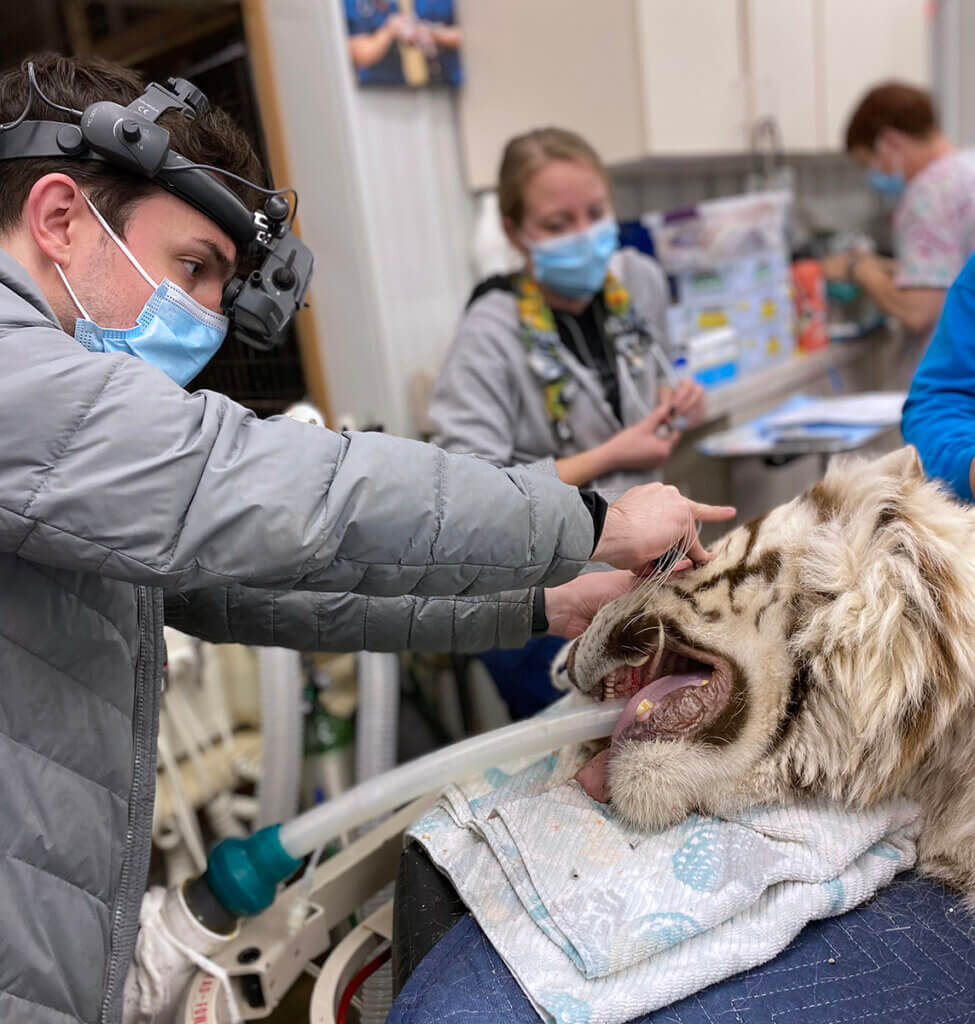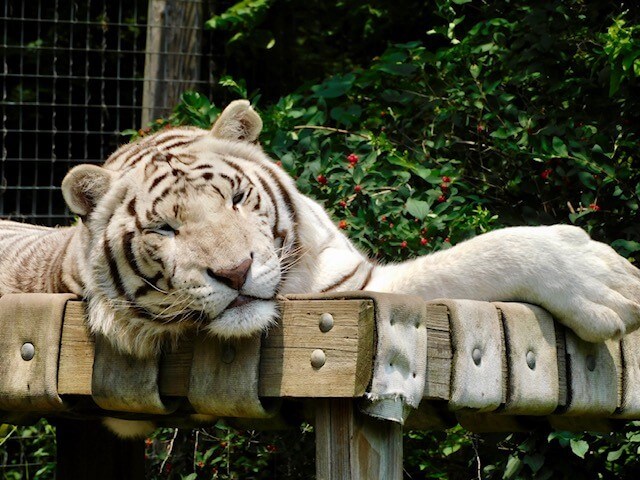
The Purdue University Veterinary Hospital Ophthalmology Service recently hit the road to examine a white tiger named Prince at the Black Pine Animal Sanctuary in Albion, Indiana after his caretakers noted changes to his vision. Timing their visit to coincide with a volunteer event during which the animals in the sanctuary received dental examinations, the Ophthalmology care team was able to examine the eyes of some of the animals while they were under general anesthesia for the dentals. When the team completed a full ophthalmic examination on Prince, they determined that he has retinal dysfunction in one eye and a cataract in the other, causing him to be non-visual.
Prince has been a resident of Black Pine Animal Sanctuary since 2020, when he was rescued from the Greater Wynnewood Exotic Animal Park in Wynnewood, Oklahoma. Famously owned and operated by Joseph Allen Maldonado aka “Joe Exotic”, a media personality and convicted felon made famous as the star of the Netflix series “Tiger King” released at the start of the COVID-19 pandemic, the park closed to visitors in October 2020 following a lawsuit and animal welfare investigation. Over 60 lions, tigers, and other big cats were rescued from the animal park after federal inspectors found the animals were suffering from poor living conditions and insufficient veterinary care. “Prince’s eye problems are a direct result of the inbreeding that occurred to get his white coat, and are unfortunately a very common problem seen in white tigers,” explained Kelsi Nicholson, senior keeper at Black Pine Animal Sanctuary. “Prince will live out the rest of his life happily and comfortably at Black Pine Animal Sanctuary where he will receive exceptional care.”

With the generosity of his amazing care team, including PVM Professor of Ophthalmology Wendy Townsend; Dr. Levi Smith, ophthalmology resident; and Pam Kirby, RVT, VTS (Ophthalmology), lead veterinary technician, the Purdue Ophthalmology Service is working to coordinate logistics to perform cataract-removal surgery. That should help Prince’s vision improve so he can spend the rest of his life happy and visual at the sanctuary.
Black Pine Animal Sanctuary is a non-profit organization that houses and cares for over 60 species of animals, reptiles, and birds. The animal residents that come to the sanctuary have either been surrendered by owners or confiscated by legal authorities due to neglect or illegal possession. One of the only multi-species sanctuaries in the Midwest, Black Pine is accredited by the Global Federation of Animal Sanctuaries, which documents that the animals receive the highest standard of care.
